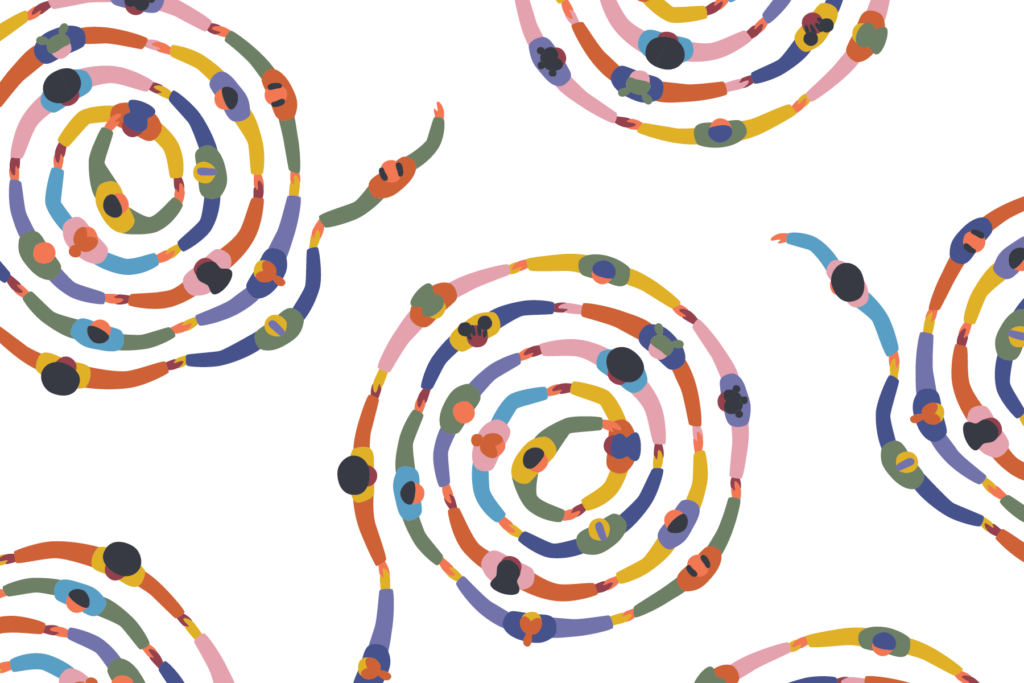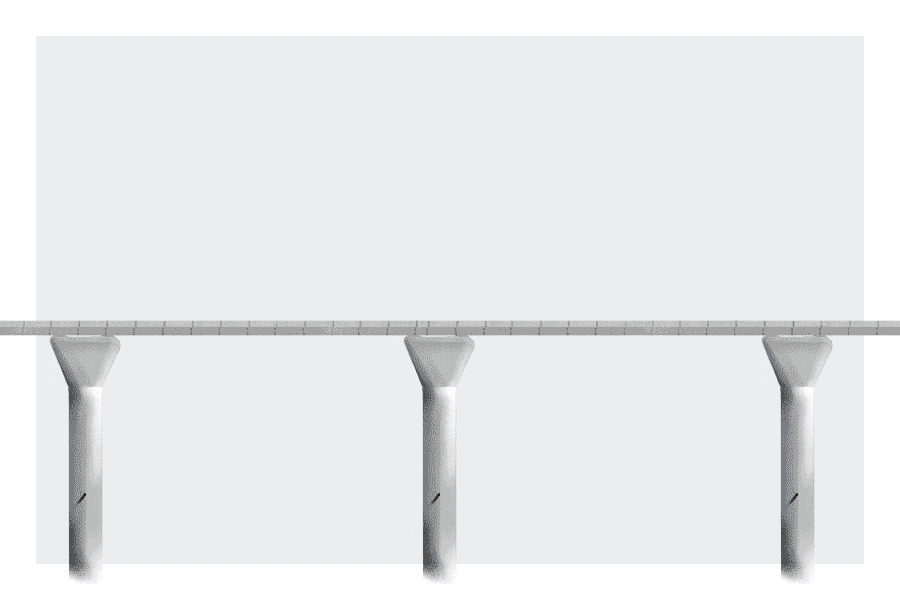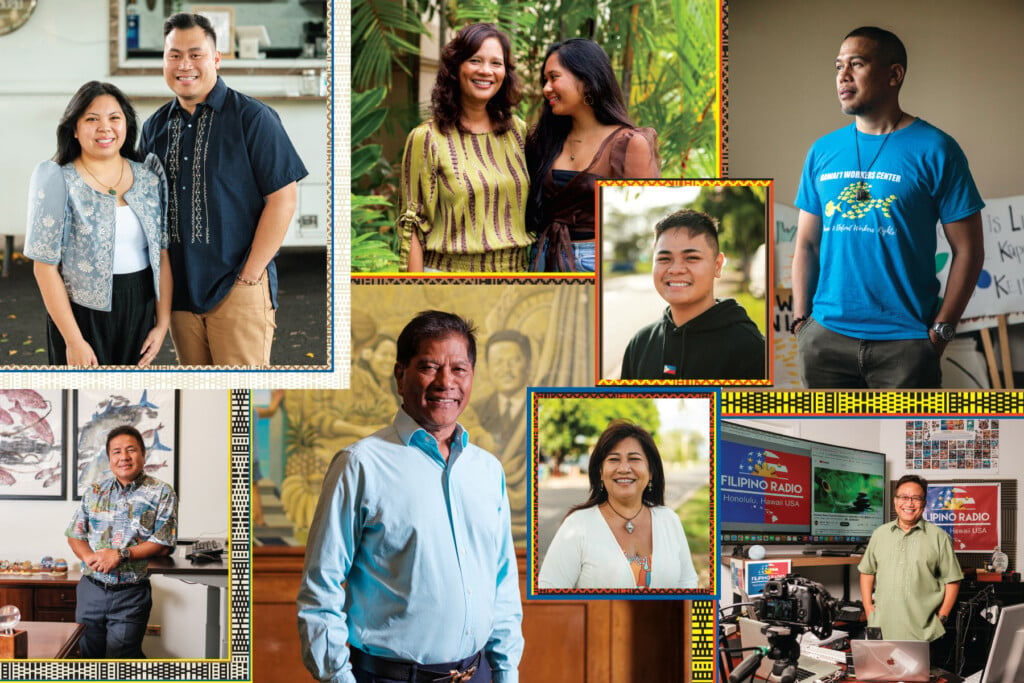8 Essential Leadership Skills for Today’s World
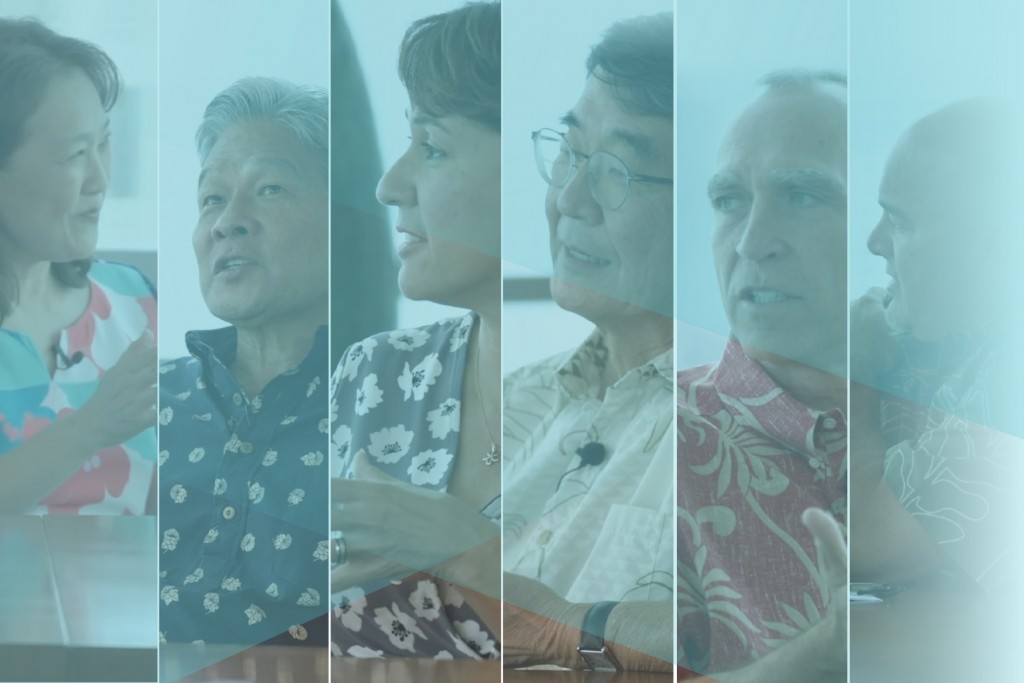
Local leaders focus on what’s needed to lead in this period of crisis and rapid change
This is an edited and condensed transcript of the opening session of this year’s Hawaii Business Magazine Leadership Conference, held July 28-30.
The participants are:
- Mark Fukunaga, Chairman and CEO, Servco Pacific
- Christina Kishimoto, Superintendent, Hawai‘i Department of Education
- Duane Kurisu, Founder and Chairman, aio family of companies
- Bob Harrison, Chairman, President and CEO, First Hawaiian Bank
- Noriko Namiki, CEO, YWCA of O‘ahu
- Micah Kāne, CEO and President, Hawai‘i Community Foundation
- Moderator: Steve Petranik, Editor, Hawaii Business Magazine
1. Authenticity
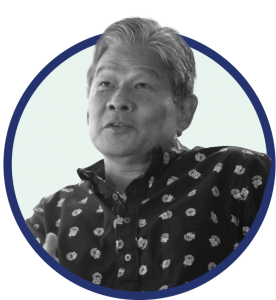
Duane Kurisu
Petranik: Everyone on the panel has told me that authenticity is essential to good leadership in Hawai‘i today. Duane, can you help me understand why?
Kurisu: Hawai‘i’s people are authentic people and when we make decisions coming from authenticity, coming from who we are, with the Hawai‘i soul, we can never go wrong.
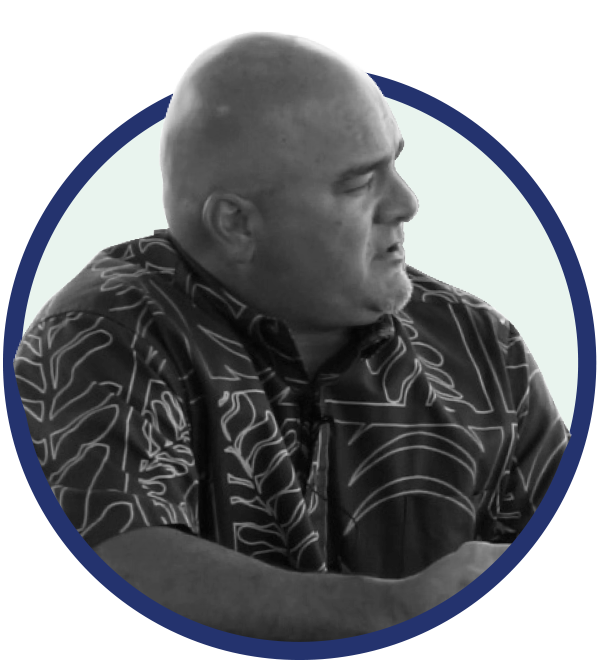
Micah Kāne
Kāne: I think we all, as leaders and as individuals, want to see Hawai‘i’s people do well. And when they’re not, we all share that pain. That’s the authenticity I hear when Duane talks about it: When you feel and share pain, you want to do something about it because they are like an extension of your family. I think that trait rises up in Hawai‘i because of our proximity to each other and that we cannot lean on another city when we need help. We have to lean in on each other.
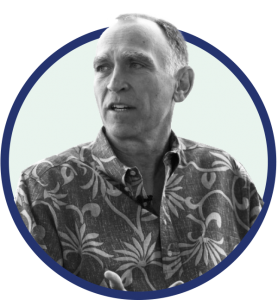
Bob Harrison
Harrison: That’s one thing about Hawai‘i’s people: They can tell if you’re authentic in a heartbeat. It comes naturally, because we’re all so close to each other. And you welcome the people who are authentic and genuine with you and tend to not stay as close to other people.
2. Adaptability and Curiosity
Petranik: The pandemic has forced every organization and every leader in Hawai‘i to adapt. But I can’t think of any organization facing more challenges and requiring more pivots than our public schools because of the pandemic.
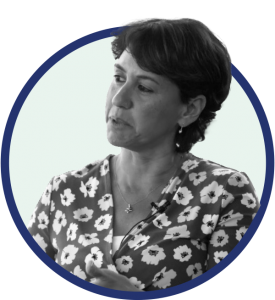
Christina Kishimoto
Kishimoto: At the Hawai‘i Department of Education we have 40,000-plus employees and serve 180,000-plus children from the age of 5 to 18. We have a very clear mission to provide quality public education, but we’ve had to adapt: Shutting down a school system and still needing to serve that public mission means that our work has to be delivered differently now. How do we transition from a very people-centric, face-to-face organization to serving using technology with people who are as young as 5? It’s the mission and the values that guide the innovation.
It connects to authenticity as well: It’s important that the employees, students and families trust us. It’s important for them to feel, “We know you, we trust you, you’re going to care for us in terms of health and safety,” but you’re also going to continue to deliver on that mission.
“(My friend) said the most remarkable thing Albert Einstein told him was, ‘I’m really not that smart, but I’m really, really, really curious.’” –Duane Kurisu
Petranik: Mark, you have told me that innovation is driven by “relentless curiosity.”
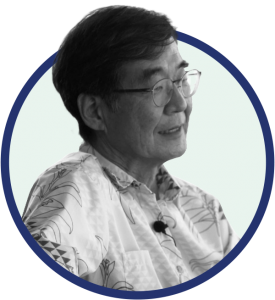
Mark Fukunaga
Fukunaga: Whether in business, nonprofit or government, innovation often is the product of cross-pollination. And it starts with being curious. When you see something there and bring it here, adapt it to a new situation because you’re curious, that becomes innovation. It is important to be relentlessly curious about your customers, members or constituents.
One of Servco Pacific’s portfolio companies is Fender Musical Instruments. The president, Andy Mooney, used to be head of Disney’s consumer products. Back in 2000, Andy was taking his daughter to an ice skating show, and the organizers knew who he was so they said, “You can go through the back to avoid the lines,” and he goes, “No, I want to see who’s coming to the show.” So he stands in this huge line of mostly mothers and young daughters. A lot of the daughters are dressed in princess costumes. He asks one of the women, “Where’d you get this costume?” She says, “Oh, I made it.” And he says, “Wow that must have taken time.” She says, “Yeah, I would love it if I could buy something like this.” That turned into the Disney princess line, which is huge for Disney, and it started with that curiosity.
Curiosity is inherent in humans, but I think good leaders take that curiosity an extra step. When you look around the corner, if you’re curious, you’re more likely to see little markers out there that tell you something is coming – particularly today when we have challenges that are so different than in the past. In this year alone we’ve had climate change, COVID and all of the challenges that presents, and we are finally having a reckoning on race, with Black Lives Matter. These issues affect all businesses, all organizations in one way or the other, and a sense of curiosity helps to understand them better.
Kurisu: A friend of mine, Alex Brody, said when he was at Princeton he used to have breakfast with Albert Einstein once a month. He said the most remarkable thing Albert Einstein told him was, “I’m really not that smart, but I’m really, really, really curious.”
3. Focus and Putting First Things First
Petranik: Leaders today are faced with information overload, decision-making overload, things-to-do-overload. How can leaders learn to focus on the most important tasks and ensure their organizations put first things first?
Harrison: Over-stimulus is the nature of business today, but also certainly the nature of being in a pandemic. How do you take data and turn it into information and turn that information into a decision? As leaders we’re not only trying to do that ourselves, we’re trying to get every person in the organization to do that.
Part of that is having a team to help you screen information. But part is having a sense of direction and aligning around that. You’ve got to strip out the noise and get right to the mission. And when you focus on the mission, you can use it to help you make the right decision, because the mission is where it begins and ends.
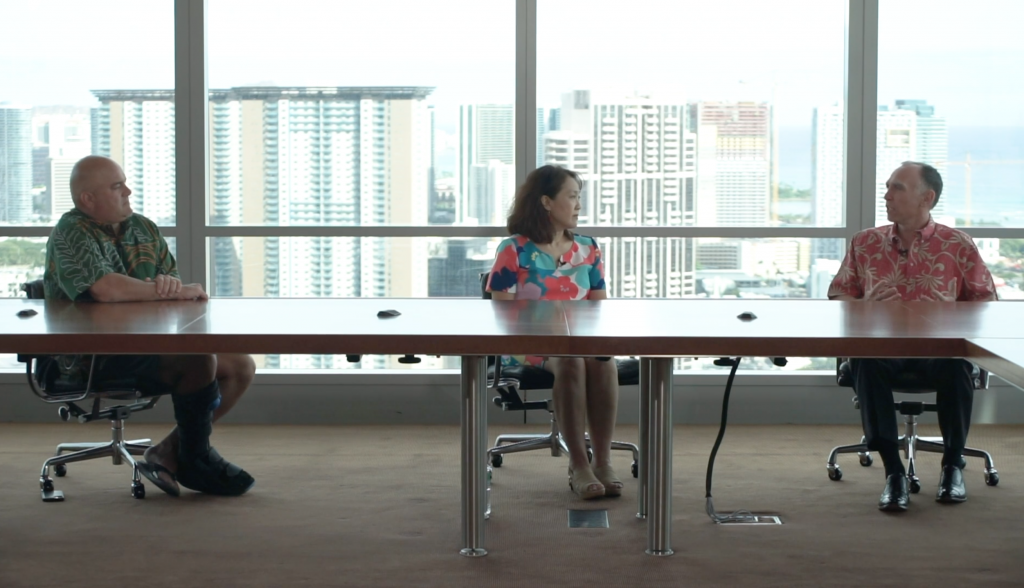
Kishimoto: The viability of every organization depends on the ability to focus on what the product is meant to be, what they do well and to deliver on that mission. In the public school system, it’s easy to look at the word “public” as the catchall for meeting all of society’s needs. During this pandemic, there’s more pressure on the organization to say that every need in society has to be met through the public education system. It can become easy to lose focus. But the focus of our institution is not to meet all of society’s needs. Our mission is to provide quality public education, so we have to focus on education.
All leaders have that same pressure to stay highly focused on what you’re really good at. At the same time, the crisis also provides an opportunity to be introspective around your core mission, how you’re delivering it, and whether you need to expand it or become highly focused to serve all constituents.
Petranik: Everybody should know what the mission is. Often mission statements appear on a wall and a website, but they’re too long and few can remember them. I feel that mission statements need to be short, clear and focused, not a catchall for every good thought the organization has. If the mission is not concise, it is hard to ensure your people know the mission and keep focused on it.
4. Trust and Shared Ownership
Kāne: I think we often let the complexity paralyze us, causing us to lack confidence in our decision-making. This is at the forefront of our challenge now. During these times it’s the human element that can help put you into overdrive to find a way to move.
There’s nothing that brings me more joy than seeing my colleagues do well, because when they succeed, I know they’re serving a constituency in need. When you have that mentality, it repositions your role as one of service. That’s what drives me. When you see somebody in the community who’s not doing well, and you’re in a position where you can influence that, you should own it.
These issues are complex, and it’s going to take a lot of people to step up to make change happen. Those of us in leadership roles, we need people to trust us, because when they trust you, they lend you their influence. They lend you their power. And as quickly as they give it, they can take it away. You need people’s trust in order to build the team and the influence to move these issues forward.
Kishimoto: Trusting our team to take the lead and not feeling like we always have to be the voice at the forefront of every decision makes us better leaders. Decision-making is much stronger when it’s joint decision-making. As a leader, when you let others lead the conversation and bring matters to the table, it gives you a chance to hear what your constituents are looking for.
Kāne: There needs to be shared ownership. To let any one individual carry that is not fair. In times like this, we all have a responsibility to share some of that ownership; even the average family should be bearing some of that ownership as well.
Petranik: We all have shared ownership in Hawai‘i and in Hawai‘i’s problems and its successes. And everyone should feel that responsibility.
5. Empathy
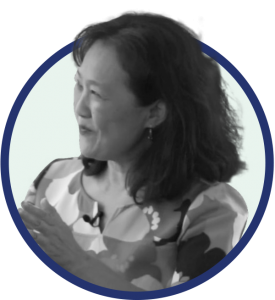
Noriko Namiki
Namiki: Empathy is crucial in the decision-making process. Empathy is aloha: how you work or live with people who may not look, think or talk like you. Empathy makes us more patient with and curious about people. For example, if someone on your staff is not doing well, empathy looks beyond what’s happening right here. It prompts you to ask, “Why is that happening,” and to explore what we can do to help that person succeed.
Harrison: We’re seeing that a lot of younger people expect empathy, or what we sometimes call emotional intelligence. It ranks very high, right up there with compensation. Titles don’t mean as much – but where they work, who they work with, how they work together is critically important. And if they don’t feel good about that, then life’s too short, they’ll go somewhere else. It is really a key recruiting tool that’s built into the culture of an organization.
“Empathy is aloha: how you work or live with people who may not look, think or talk like you. Empathy makes us more patient with and curious about people.” –Noriko Namiki
To Christina’s point about sitting back and watching how people interact, you learn a lot more that way. I never learned anything by talking. I have learned an awful lot by listening.
Fukunaga: Our roles are born out of service, to help, to assist. Thirty years ago, communication was all about substance. What was in the message? What were you trying to say? I think now the emotional communication is maybe more important than the substance of what you’re saying. Convey your empathy, your authenticity and your emotion through visual cues and body language, not just text. Show that you care, that if you don’t have it figured out, say you don’t have it figured out, but say also that you’re going to work your tail off to figure it out.
Kurisu: I think communicating with empathy is going back to the way things were. I grew up in a plantation community where some of the people could not speak English well. So if they said, “Eh, you know,” I did know, because it was nonverbal communication; it was communicating through emotion. So one of the terms that I don’t care for is the “new normal.” I almost think it should be the “old normal,” because we’re going back to emotions and things like character, and reminding ourselves how important that stuff is.
6. Championing Diversity and Inclusion
Petranik: Hawai‘i is diverse, but sometimes our organizations are not as diverse as Hawai‘i.
Kishimoto: Diversity is not just about counting gender or racial representation. It’s about who, ultimately, in a community is treated as an underclass group because we suppress their voices. I think sometimes we stay in the safe space of saying, “I hired a woman this year,” or “I hired a person of color this year,” but we’re talking about more than that. Diversity is about the power structure in our own organizations, in our Hawai‘i communities, and in this nation right now, in terms of who has a voice driving policies that also drive money and access to wealth and a standard of living that every human being should have access to. So that’s a very different conversation, and we have the opportunity to truly be honest about how we protect our own power structures.
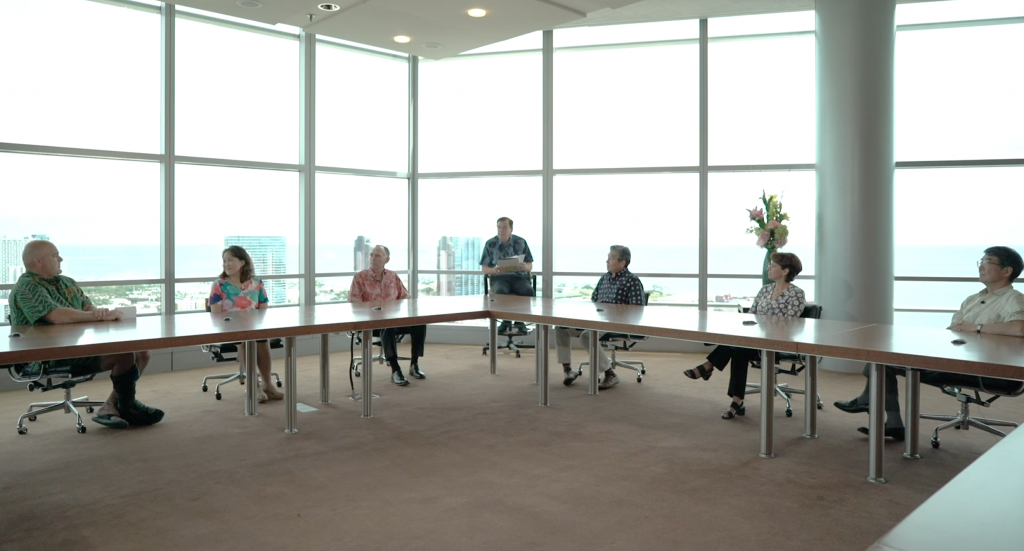
Namiki: I agree. In diversity we should go beyond having a token person. Recently we realized the access issue has a lot to do with the gaps between those who have and have not, and you have to bring their voices too, if you truly want to build a resilient community. Because it’s not about us or what we think is good for them; you really have to listen to what they need as well. And we often forget that. Again, it goes back to empathy.
7. Humility and Learning from Failure
Namiki: I was born and raised in Japan, and we really placed importance on humility. When I took this position I told myself, “Do not pretend that you know everything, be humble. When you don’t know things, you have to be honest.”
You have to be honest and transparent and ask people to help you. With our staff, if I don’t know what they’re saying, I ask, “Can you help me? I don’t understand.” That has a lot to do with humility because I feel like the higher you go within the organization, the less people will actually tell you what they think of you or about your performance. People do not want to deliver bad news to you.
Somebody once told me, “Noriko, you can never fail if you keep going until you succeed.” So there’s no such thing as failure if you keep going; but if you stop at a point where you feel like you failed, then that becomes a failure. I try to remember that when things get tough or the project gets stalled. What I focus on is a rebound: How quickly can I learn from that?
Harrison: When we did our IPO (initial public stock offering) almost four years ago I was petrified. I thought, “Why am I in this chair? What qualified me to be here, trying to sell $560 million of something?” But then I thought, “You’ve done a lot of things along the way.” You talked to literally hundreds of people in that process, and then you realize you kind of know this stuff and you keep going down
the path. I think that’s what a lot of us have done: the 30-year overnight success story. And it came from that relentless curiosity.
“It’s our job in communicating to our staff, to the community and to the public, especially in these times, to take the fear out of the future and to tell people how we’re going to win.” –Duane Kurisu
8. Courage
Petranik: Courage is also a skill that leaders need, and Duane you’re too modest to admit this, but you’re one of the more courageous leaders in Hawai‘i. Can you tell us about why courage is important in leadership?
Kurisu: Maybe I’m courageous because I got beat up by my brothers growing up.
I’ve heard the statement that it’s the guys on the bottom who do all the work. What people don’t always realize is that being at the top is scary and it can be lonely. You sometimes have to make decisions without complete information and it can affect thousands of people’s lives. There are some issues you can’t share with your board, your close colleagues or even
your spouse.
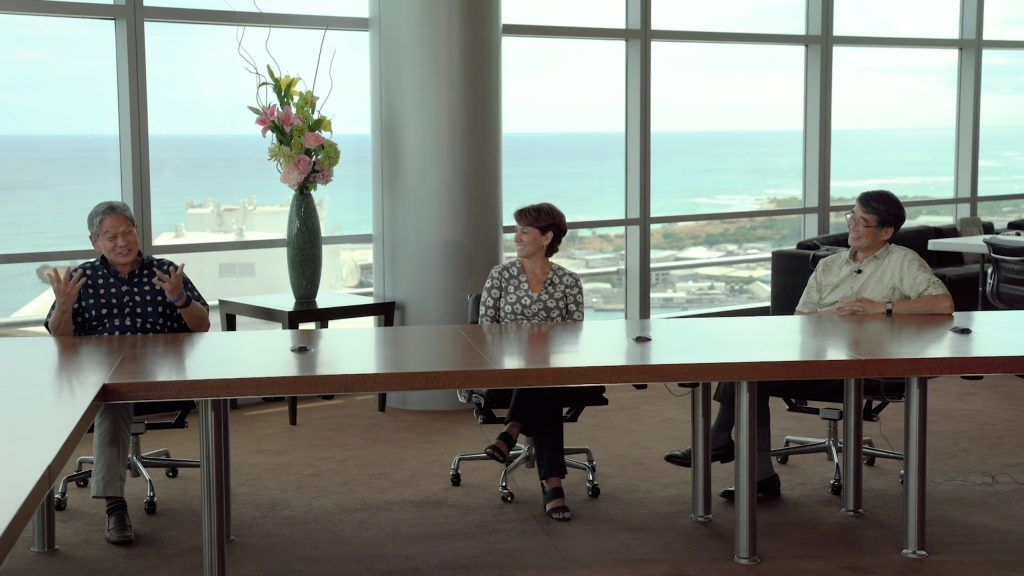
But it’s a leader’s job to look at what could be rather than what is. Probably the most courageous people are entrepreneurs. They work every day with nothing under their feet, putting their lives behind their passion. You say I’m courageous, but I’m not alone. I’m with the people here in this room. Smart risk-taking is being courageous; it’s also our job in communicating to our staff, to the community and to the public, especially in these times, to take the fear out of the future and to tell people how we’re going to win. And that takes courage. It’s putting yourself at risk, putting your thoughts
and feelings at risk.
Kāne: I’m finishing a book called “The Splendid and the Vile,” which is about Winston Churchill’s leadership during the Nazi blitz on Britain. I’m at the point in the book where he’s trying to convince American President Franklin Roosevelt to enter the war, and Churchill’s lonely and he’s scared. So much of what we’re talking about today is in this book.
As you elevate in leadership, you tend to lose poles to lean on, whether it’s your colleagues or even your spouse, and what I have found is those leaders who thrive have built some inner pole that they’ve been able to lean on, and it’s not built overnight. Some build it through prayer, some build it through meditation or other means. But those leaders who spend time building that inner pole in themselves, when it’s needed they’ve got something to lean on.
